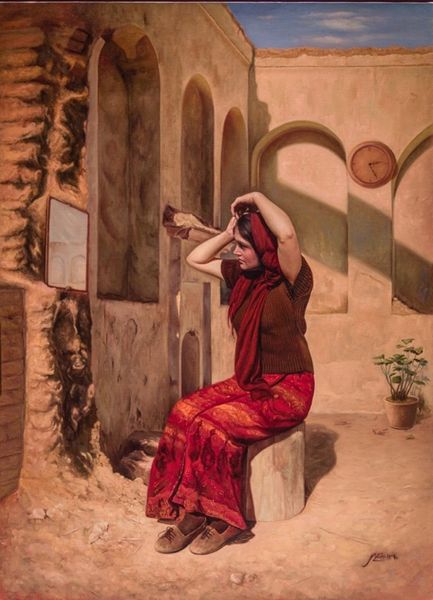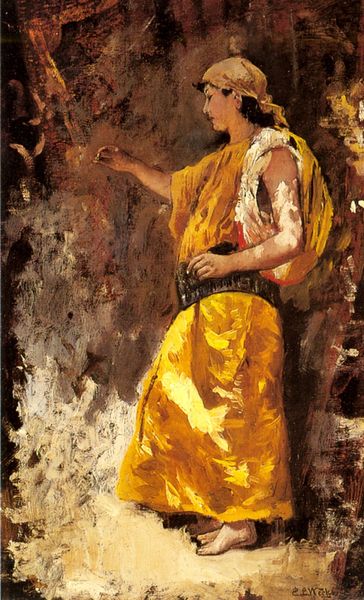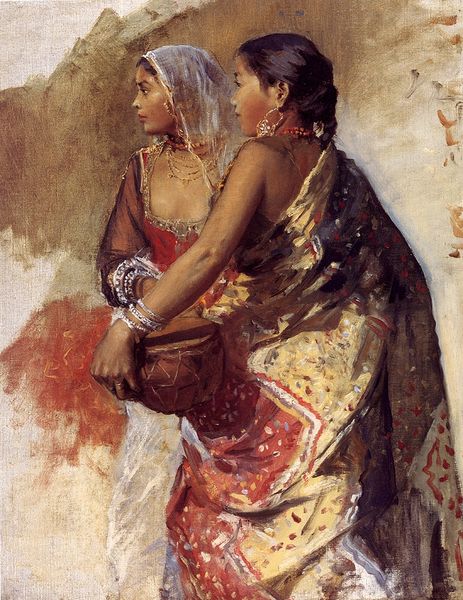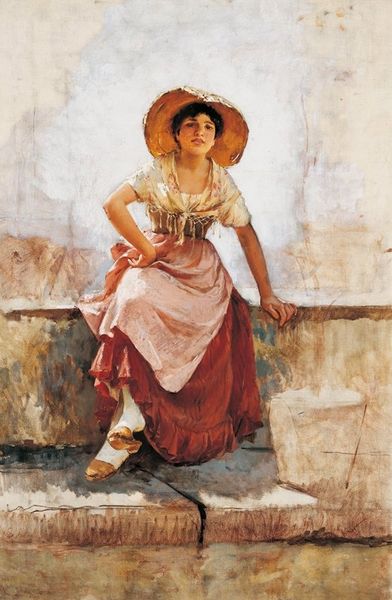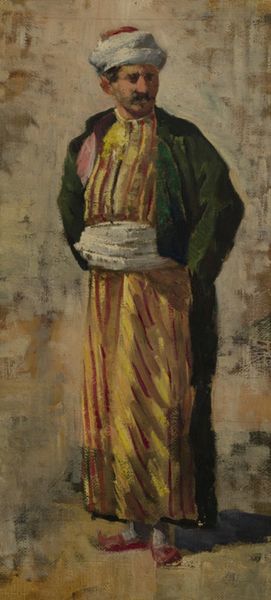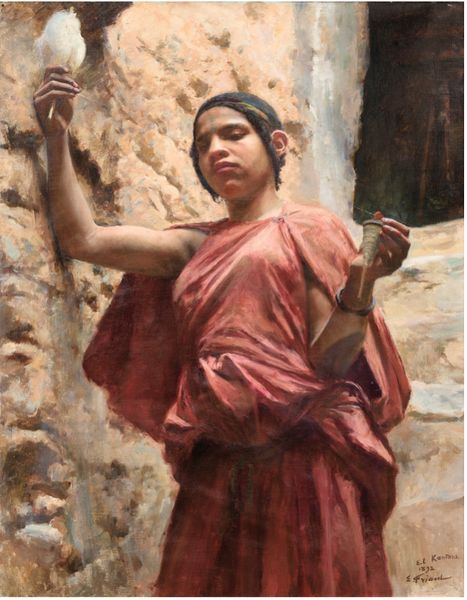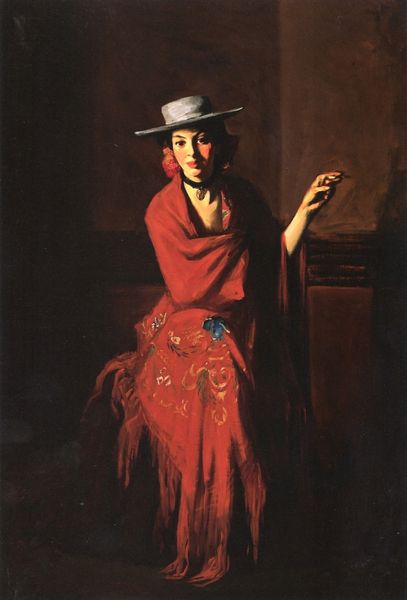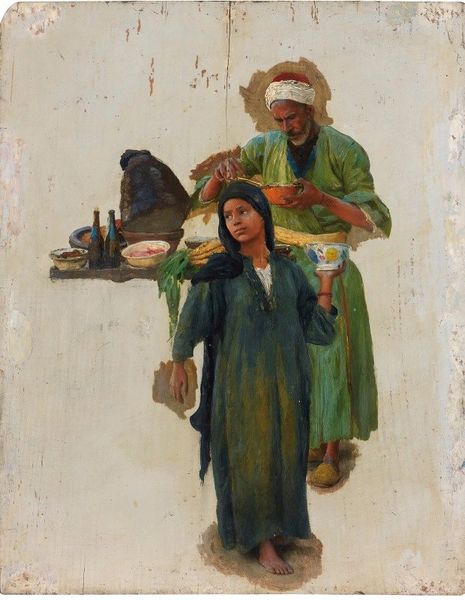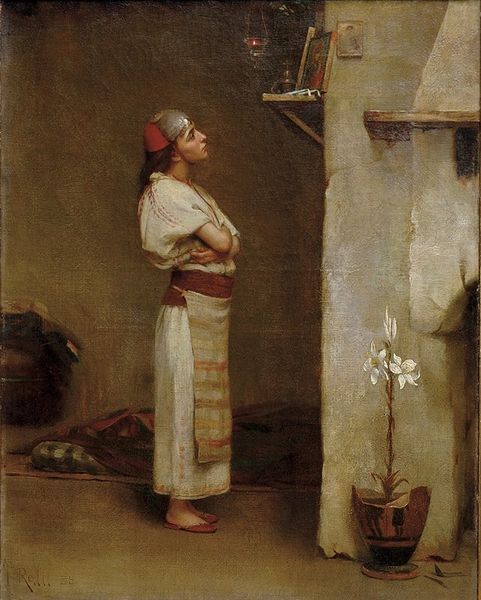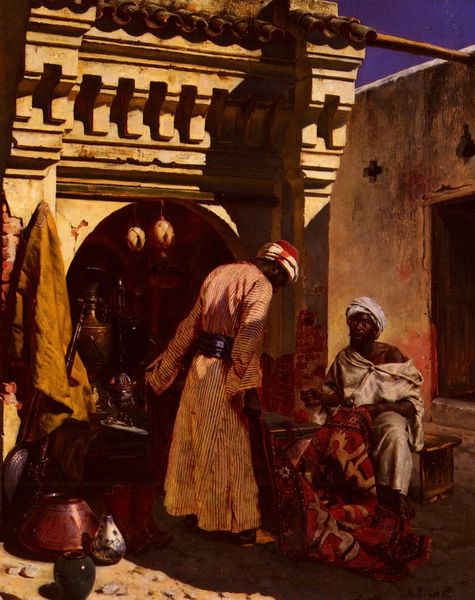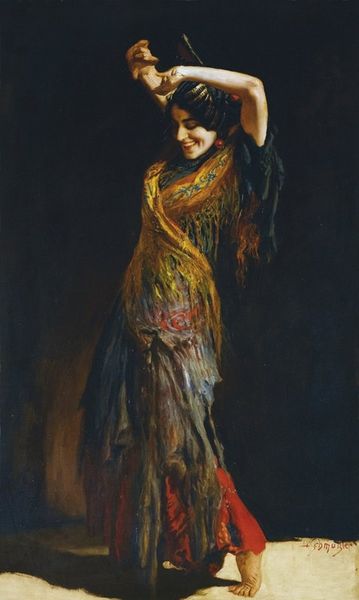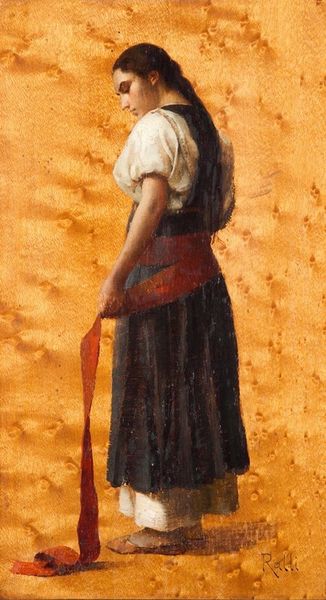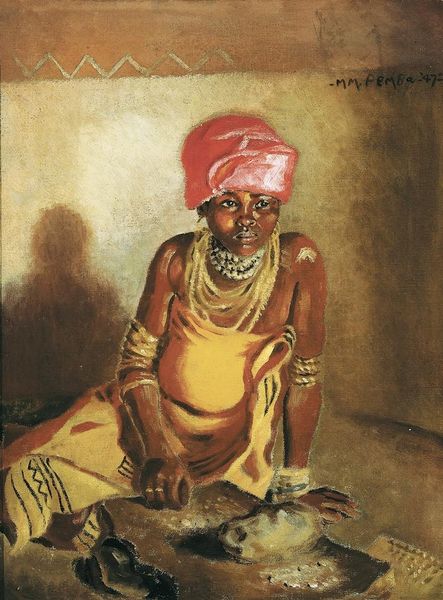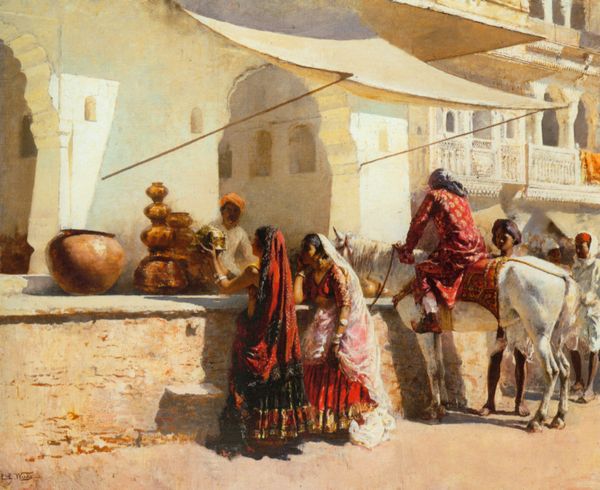
abstract painting
charcoal drawing
possibly oil pastel
oil painting
neo expressionist
acrylic on canvas
underpainting
painting painterly
watercolor
fine art portrait
Copyright: Public domain
Maurice Bompard painted “La Fileuse,” or “The Spinner,” during a period when Orientalism was in vogue. He, like many artists of his time, traveled to North Africa and the Middle East in search of exotic subjects. In this painting, we see a woman, presumably from one of these regions, engaged in the traditional craft of spinning. Her vibrant orange clothing immediately captures our attention, while the simple interior suggests a life far removed from the opulence of the Western world. The image raises questions about cultural representation. Was Bompard genuinely interested in the lives of the people he depicted, or was he merely perpetuating stereotypes for a European audience? Consider the power dynamics at play: a Western artist capturing the image of an Eastern woman, potentially reinforcing colonial narratives. How does this influence our interpretation and appreciation? Is the artwork an authentic window into another culture, or a reflection of Western fantasies and power?
Comments
No comments
Be the first to comment and join the conversation on the ultimate creative platform.
